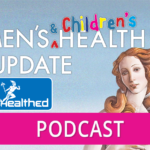Sydney psychiatrist warns of a covid-related mental health crisis that is only now being recognised.
The lack of an anticipated covid-triggered suicide epidemic shouldn’t make us complacent, warns a Sydney psychiatrist.
While fears of a spate of suicides driven by lockdowns and the pandemic don’t appear to have been borne out, psychiatrist and researcher at UNSW Dr Juan Carlos d’Abrera said this wasn’t a sign of good mental health among Australians.
“Victory celebrations are premature,” he wrote in a letter to the editor in the Australian & New Zealand Journal of Psychiatry .
“The weight of emerging evidence suggests strongly that lockdowns are a deadly policy option, especially for the most vulnerable groups in society.”
Responding to an earlier ANZJP paper led by Professor Nick Glozier from the University of Sydney, which used suicide rate data to argue “people were not as distressed by the pandemic and lockdown as predicted”, Dr d’Abrera said too much weight was put on contemporary suicide figures as a measure of the wellbeing of Australians.
Instead, Dr D’Abrera said suicide rates may only now, in the aftermath of lockdowns and the slowdown of the pandemic, be reflecting the true effects.
The Coroners Court of Victoria reported earlier this year that 2022 saw the highest suicide rates since 2000.
Social isolation, mental health issues, substance abuse, familial conflict and financial stressors were all risk factors for suicide, according to the coroner.
“Lockdowns led to a proliferation of all of these fundamental determinants,” Dr D’Abrera added.
Data collected in the middle of lockdowns, such as that of Dr Glozier and colleagues, did not reflect the full extent of the effects of the lockdowns, Dr d’Abrera argued.
He pointed to a 2021 systematic review in ANZJP highlighting loneliness as a contributing factor to depression in the post-lockdown period.
And ABS figures from the same year suggested deaths from drug and alcohol abuse were on the rise, at the highest rates in 10 years, he noted.
One sign of the current mental health crisis was that mental health related prescriptions through the PBS increased 12%.
Requests for ambulances in response to suicide and self-injury exploded following the announcement of lockdown measures in early 2020 according to data published earlier this year.
Some of the most pronounced increases in records of self harm were seen in young women. NSW emergency departments reported that self harm or suicide ideation in 13 to 17-year-old girls increased by 47% per year between 2019 and 2021.
“Considered in aggregate, these statistics point to an emerging mental health crisis with likely sustained, cumulative sequelae, including suicides,” Dr d’Abrera said.
“More research is needed to fully gauge the scale of the serious and sustained impacts of lockdowns on mental health,” he concluded.
Australian & New Zealand Journal of Psychiatry 2023, online 15 May




